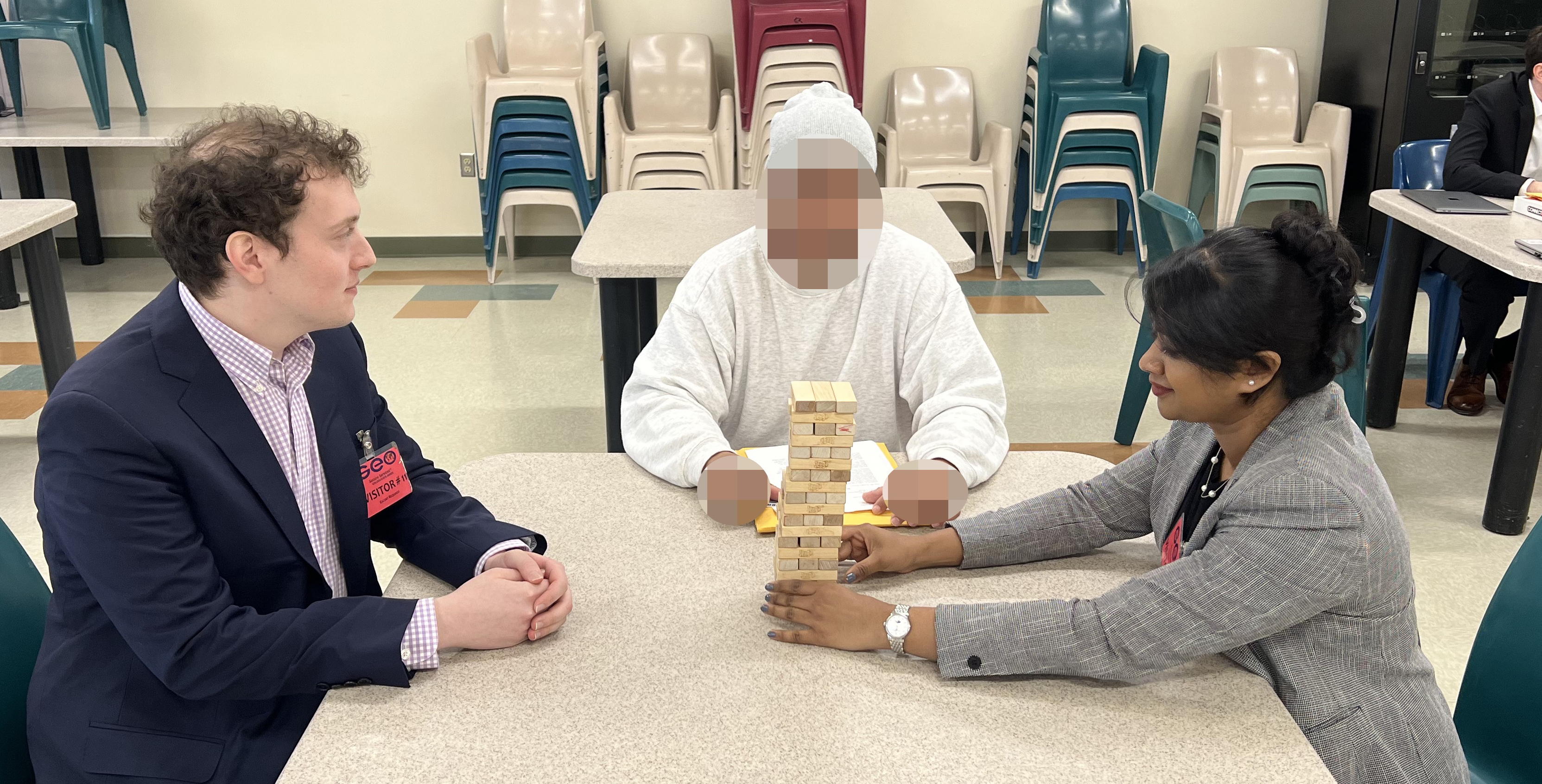This website uses cookies
We use cookies to ensure that we give you the best experience on our website. If you continue to use this site we will assume that you are happy with it.

After nearly two years of effort, a team of students and faculty in the Cornell Asylum and Convention against Torture Appellate Clinic secured the release of a client referred to as “IES,” a reformed gang member who fled multiple cartel attacks in Mexico only to be imprisoned in California.
IES, now forty-one years old, first came to the United States from Mexico when he was eighteen. As a youth, he joined a gang and was arrested in 2005 for possessing a small quantity of drugs and sentenced to four years in prison. While in prison, IES defected from the gang and, following his release, was returned to Mexico. There, his tattooed physical appearance caught the attention of gangs and cartels who attacked him and his family, prompting him to relocate eight times within Mexico. Unable to find safety in Mexico, IES fled back to the United States in 2010.
In 2022, IES was detained by the U.S. Immigration and Customs Enforcement and held at the Golden State Annex, a private for-profit prison in McFarland, California. IES applied for asylum and protection under the Convention Against Torture, but an immigration judge denied his application.
The Cornell asylum appeals clinic learned of IES’s case and Isaac Belenkiy ’24, Eva Charles ’24, and Stephen Yale-Loehr, professor of immigration law practice, took on his appeal.
Belenkiy and Charles took the lead in researching all elements of their argument. They argued that the immigration judge improperly analyzed IES’s 2005 offense by ignoring evidence that the drugs were only for personal use, not “transporting drugs,” as he was convicted of. They also argued that the judge failed to consider future torture from gangs and cartels despite an expert saying this risk was at 80 percent, and that the judge mischaracterized IES’s attempts to flee cartels eight times as “relocation.”
“As a newcomer to the clinic with no background in immigration law, I am grateful that the clinic gave us almost full ownership of this case,” says Charles. “Through this experience, we not only gained a thorough understanding of the law, but also honed practical skills such as client communication, case management, and document handling.”
In June 2023, the Board of Immigration Appeals sustained the clinic’s appeal in IES’s favor and transferred the case to a public defender. The clinic team worked closely with the public defender’s office to represent him on remand.
Simultaneously, the legal team participated in other advocacy efforts. While at Golden State Annex, IES participated in a labor strike in 2022 and a hunger strike in 2023 to draw attention to the abysmal conditions there. The hunger strike resulted in a class action lawsuit on behalf of the detainees and the submission of release requests on behalf of individual detainees.
Says Charles of these additional elements to the case, “we learned to cultivate relationships with stakeholders, coordinate grassroots movements, and navigate interactions with federal immigration agencies.”
Following his hunger strike, the clinic found a law firm (Morrison Foerster) to represent IES pro bono for a habeas corpus petition. In September, this petition was granted and IES was soon released with protection under the Convention Against Torture. He is now back home with his wife and children, able to get a work permit. Most importantly, he cannot be deported to Mexico.
“In IES’s journey from detention to liberation, our team found a beacon of hope and resilience,” says Charles. “This clinical experience has been instrumental in shaping me as a future lawyer. Although it demanded hard work, I would gladly do it all over again for our client.”